DEGREES of GIVENNESS
INDIANA SERIES IN THE PHILOSOPHY OF RELIGION
Merold Westphal, editor
DEGREES
of
GIVENNESS
On Saturation in Jean-Luc Marion
CHRISTINA M. GSCHWANDTNER

This book is a publication of
Indiana University Press
Office of Scholarly Publishing
Herman B Wells Library 350
1320 East 10th Street
Bloomington, Indiana 47405 USA
iupress.indiana.edu
Telephone 800-842-6796
Fax 812-855-7931
2014 by Christina M. Gschwandtner
All rights reserved
No part of this book may be reproduced or utilized in any form or by any means, electronic or mechanical, including photocopying and recording, or by any information storage and retrieval system, without permission in writing from the publisher. The Association of American University Presses Resolution on Permissions constitutes the only exception to this prohibition.
 The paper used in this publication meets the minimum requirements of the American National Standard for Information SciencesPermanence of Paper for Printed Library Materials, ANSI Z39.481992.
The paper used in this publication meets the minimum requirements of the American National Standard for Information SciencesPermanence of Paper for Printed Library Materials, ANSI Z39.481992.
Manufactured in the United States of America
Cataloging information is available from the Library of Congress.
ISBN 978-0-253-01419-1 (cloth)
ISBN 978-0-253-01428-3 (ebook)
1 2 3 4 5 19 18 17 16 15 14
fr Dorli
CONTENTS
Introduction: Givenness, Saturated Phenomena,
Negative Certainties, and Hermeneutics
PREFACE
In this book I consider Jean-Luc Marions proposal for a phenomenology of givenness and saturated phenomena, asserting a greater need for degrees of givenness and saturation. I discuss a variety of phenomena that Marion identifies as saturated, but also argue for other phenomena as saturated that Marion does not consider in his proposal, especially phenomena of nature. I move from some of the phenomena Marion identifies as simply saturated (event, idol, flesh, icon) to those he sees as doubly saturated, namely the phenomenon of revelation or religious phenomena. Throughout I contend that all these phenomena require an account of degrees of saturation, of degrees of negative certainties, and especially a stronger role for hermeneutic preparation than Marion so far admits. The introduction sets the context by briefly laying out Marions phenomenological project of givenness, explaining its most important terminology, such as those of the saturated phenomenon and negative certainty, and highlighting some of its central difficulties, especially those surrounding the role of hermeneutics. It discusses the ways in which Marion does or does not allow for degrees of givenness and considers why he focuses so strongly on the most excessive manifestations of phenomena. The introduction hence provides the background for understanding Marions phenomenology but also articulates the contribution this particular study will make to that project. Although this book is critical of various aspects of Marions thought, it certainly does not constitute a rejection of Marions project per se; rather, it works within his phenomenology of givenness by suggesting important aspects that have not been explicitly considered by Marion himself but are not therefore incompatible with his project.
carefully, that knowledge about it might increase, and that some accounts may well be more accurate than others and argue that these are essential aspects of a full account of historical phenomena as given both in saturated and less saturated form.
considers Marions discussion of art. Marion defines the artist as the one who has had a vision of the unseen and is able to communicate this vision in the painting, which gives what was previously unseen to full visibility. Great art always has to be seen again and again and continually reveals new dimensions on the viewer. Instead of being an object we impartially observe, it is instead a given phenomenon that overwhelms us with the impact it has on us. While some great paintings may indeed be given in such overwhelming fashion, I suggest that degrees of givenness are also required for taking account of the fact that we are not always completely overwhelmed by every work of art we view and that this is not merely a fault of the observer who cannot bear the bedazzling weight of the paintings glory. In this context I also contend that Marions account of the artist comes dangerously close to Kantian versions of the genius and is thus subject to Gadamers critique of this account.
In I propose natural phenomena as candidates for saturated phenomena. Marions account so far has no place for nature. Animals and plants seem reduced to technical objects or are ignored entirely. This is deeply problematic both for ecological reasons and for what it means to be human. I suggest that natural phenomena can indeed be given as saturated phenomena in Marions sense, but that hermeneutics and degrees of saturation are necessary for such an account. In this chapter I also provide an analysis of Marions account of the flesh and suggest that a more natural account of the flesh and its sensations as rooted in our experience of nature might well prove necessary and illuminating.
In I examine Marions troubling comparisons of love with war and argue that it highlights the absolute nature he attributes to love in his account. Love is utterly kenotic, totally overwhelming, inexpressible. I suggest that it must be possible to speak of a response to love and that it is problematic to speak of a lover who loves completely without any such response, that somehow the phenomenon of love can exist without a beloved. I also critique Marions contention that an account of love must be univocal (that God loves in the same way as humans do) as inconsistent with his account in Thologie blanche that there can be no univocity in language applied to divine and human. Instead, I suggest that there are many different kinds and degrees of love and that even Marions excessive account requires previous hermeneutic commitments.
still too excessive. I join to this an analysis of Marions descriptions of sacrifice and forgiveness, which he closely associates with the gift. I argue that these accounts disregard normal human experience in order to focus entirely on extremely exceptional instances which are rare if not nonexistent. Again I argue that hermeneutics is necessary to recognize gifts as such and that gifts also come in degrees.
examines Marions accounts of prayer in The Crossing of the Visible and other places in his work and suggests that it is too extreme and solitary. Marion consistently speaks of prayer in the singular and does not consider communal dimensions of religious experience, such as liturgical prayer. This points to a more general problem in Marions account in that religious experience is almost exclusively thought in terms of the mystic at the heights of solitary contemplation. Such accounts are difficult to verify or even to describe phenomenologically. The chapter also reflects on Marions discussion of sanctity as completely invisible and suggests important parallels to his accounts of prayer. I show that the larger tradition, on which Marion draws, considers degrees an essential aspect of growth in prayer.
Marion has repeatedly provided analyses of the Eucharist, beginning in God without Being and continuing in several later articles. examines these various accounts and shows how the more recent ones resolve problems in the earlier descriptions. At the same time, I point to places where difficulties remain in this work and that these difficulties are consistent with the issues perceived in Marions work overall: the emphasis on absolute excess, the disregard for communal or corporate experienceparticularly troubling for an account of the Eucharistand the dismissal of hermeneutics, especially in light of the fact that Marion talks about a eucharistic hermeneutics in the early account in
Next page



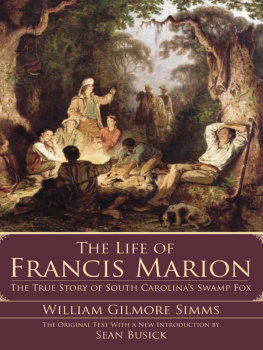

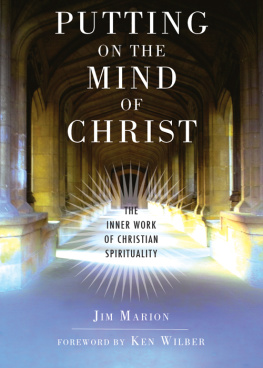
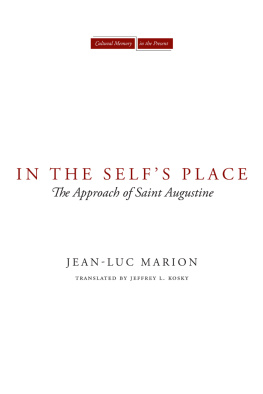
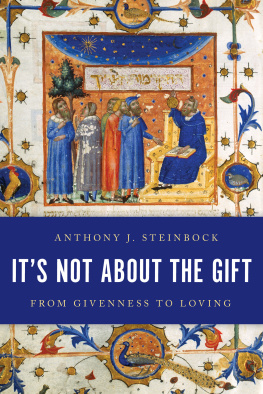
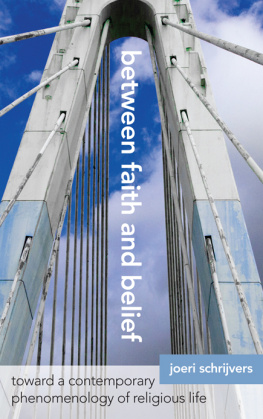

 The paper used in this publication meets the minimum requirements of the American National Standard for Information SciencesPermanence of Paper for Printed Library Materials, ANSI Z39.481992.
The paper used in this publication meets the minimum requirements of the American National Standard for Information SciencesPermanence of Paper for Printed Library Materials, ANSI Z39.481992.